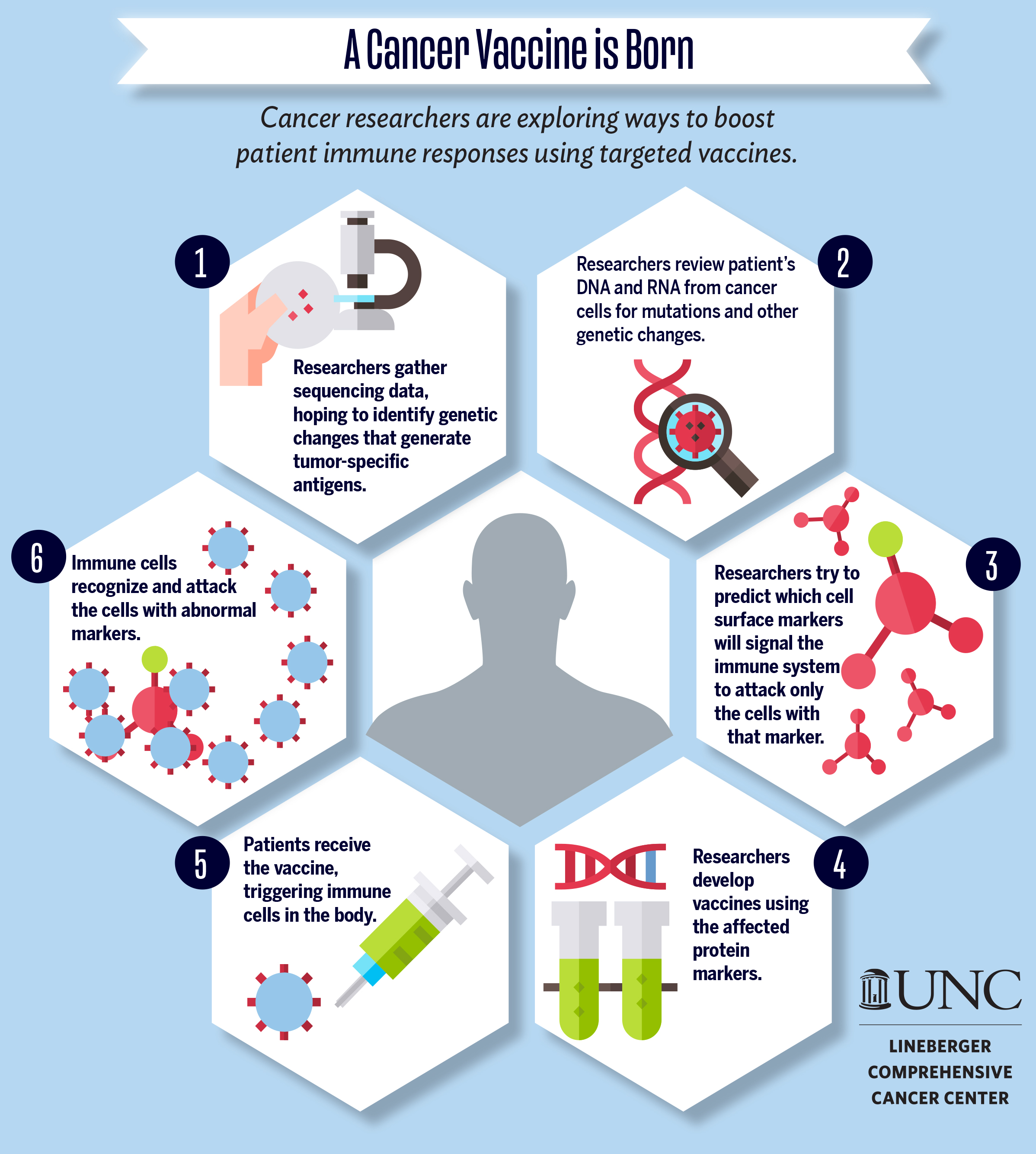University of North Carolina Lineberger Comprehensive Cancer Center researchers have published a review of experimental cancer vaccines that identified areas of promise and challenges for the field.

In the Nature Reviews Cancer, researchers outlined current research into targets for therapeutic cancer vaccines, an area of active investigation focused on boosting immune responses to cancer.
“Generally, when we think of vaccines, we think in terms of disease prevention; you get a vaccine so your immune system can better recognize and fight off infections,” said Christof Smith, a student in the UNC School of Medicine who was first author of the review paper. “Cancer vaccines are different; we’re studying them to be used therapeutically. We’re studying whether we can take a tumor, identify potential targets that can activate immune responses, and design a personalized vaccine to develop the immune response to fight the tumor.”

The authors reviewed research focused on different types of tumor-specific antigens – irregular markers on cancer cells that are not on healthy cells – that might be beneficial to explore as immune targets.
To find these irregular markers on cancer cells, scientists scan the genetic makeup of a cancer cell within an individual patient and then use computational methods to predict which ones might generate an immune response.
“There’s tremendous interest in cancer vaccines, and key challenges for the field are to discover the best targets and align vaccine development research with optimal target identification research,” said UNC Lineberger’s Benjamin Vincent, MD, assistant professor in the UNC School of Medicine Division of Hematology-Oncology.

Researchers reported that “single nucleotide variants (SNVs),” which are variations in one letter of the genetic code, are the most common type of tumor-specific antigen targeted in therapeutic neoantigen vaccine studies. Neoantigens are irregular markers unique to cancer cells that can potentially trigger an immune response.
“SNVs have been the primary focus in the field so far,” Smith said, explaining that this is a type of tumor-specific antigen that is relatively easy to predict, but it comprises only a small subset of all available tumor targets. “There is some evidence that other tumor-specific antigen targets may be able to produce immune responses as effectively as SNV neoantigens. In cancers with relatively low SNV neoantigen burden, these other antigens could provide a broader repertoire of available tumor vaccine targets.”
They highlighted opportunities for other types of tumor-specific antigens that researchers could study as possible cancer vaccine targets, including irregular markers created by deletions or shifts of entire sections of DNA; abnormal proteins created when genes are improperly fused together, and others. In addition, UNC Lineberger researchers are particularly interested in “endogenous retroelement antigens,” which are abnormal markers created by segments of quiescent, or inactive, viral DNA that have been inserted into the human genome.
“We find them really exciting,” Smith said. “They’re potentially shared between patients, which, if true, could decrease the time it takes to generate a vaccine, and we think the immune responses you get from them are potentially more robust than conventional SNV neoantigens.”
Smith said that this area of investigation is exploding, and the review points to research opportunities for the field.
“We’ve barely scratched the surface in terms of the immune targets we can study,” Smith said. “Despite the fact that we’ve known about some of these tumor antigen targets for decades, until recently, we haven’t recognized their full scope or been able to personally predict them for each patient in order to use them clinically.”
In addition to Smith and Vincent, other authors included Sara R. Selitsky, Shengjie Chai, Paul R. Armistead, and Jonathan S. Serody.
The work was supposed by the National Institutes of Health, the University Cancer Research Fund, and the Susan G. Komen Career Catalyst Research Grant.
